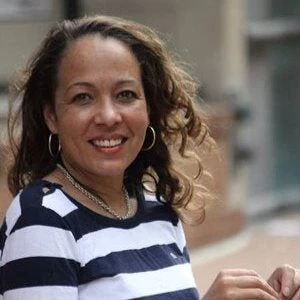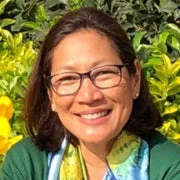 การให้ความช่วยเหลือทางจิตสังคมเป็นองค์ประกอบสำคัญส่วนหนึ่งในการสร้างสันติภาพ ตลอดช่วงหลายปีที่ผ่านมา ในช่วงไม่กี่ปีที่ผ่านมา ธนาคารโลกได้ให้การสนับสนุนด้านจิตสังคมแก่ผู้ที่ได้รับผลกระทบจากกฎหมายที่เกี่ยวข้องกับความมั่นคงในพื้นที่ที่ได้รับผลกระทบจากความขัดแย้งทางภาคใต้ของประเทศไทย
การให้ความช่วยเหลือทางจิตสังคมเป็นองค์ประกอบสำคัญส่วนหนึ่งในการสร้างสันติภาพ ตลอดช่วงหลายปีที่ผ่านมา ในช่วงไม่กี่ปีที่ผ่านมา ธนาคารโลกได้ให้การสนับสนุนด้านจิตสังคมแก่ผู้ที่ได้รับผลกระทบจากกฎหมายที่เกี่ยวข้องกับความมั่นคงในพื้นที่ที่ได้รับผลกระทบจากความขัดแย้งทางภาคใต้ของประเทศไทย
Psychosocial support is an essential ingredient for peace-building. Imagine a generation of children who have been affected by conflict and violence and do not receive the necessary care and attention. The lack of access to supportive services and exposure to conflict and violence often diminish human capital, eroding every child's right to grow up with an opportunity to achieve their full potential. On this International Day of Persons with Disabilities 2021, we flag the importance of psychosocial support as a central component to moving toward an inclusive, accessible, and sustainable post-COVID-19 world.
Thailand's four southernmost provinces – Narathiwat, Pattani, and Yala, and four districts of the province of Songkhla – are the center of a protracted sub-national conflict. These areas once formed part of historic Pattani, the independent Malay Kingdom, most of which was annexed by the Kingdom of Siam in 1909. Since the region's incorporation into Thailand, the local Malay Muslim population, which today represents about 75 percent of the total population in the area, continues to feel a perceived sense of social and economic exclusion, discrimination, and marginalization. This perceived exclusion has fueled a conflict that presents significant challenges to the social and economic development of the region.
While the deep south provinces cover only 2.6 percent of the total population, they account for 7.8 percent of the poor in Thailand (approximately 0.57 million people). In 2017, two of the four provinces, Pattani and Narathiwat, had the country's highest poverty rates, at 34.2 percent. Since 2004, violence has resulted in more than 7,000 deaths and 13,000 injuries in southern Thailand, with at least two generations experiencing the conflict. In addition, many individuals who were children during that time today have families of their own and remain traumatized by their experience, often resulting in domestic violence, adverse health outcomes, and economic hardship.
Since 2007, the World Bank has been providing support to the government, people, communities, and civil society organizations (CSOs) in the conflict-affected areas of Thailand to promote peace and development. The support has included a range of conflict-sensitive community development activities using the community-driven development approach and small grants to civil society organizations financed by the State and Peace-Building Fund, the Korea Trust Fund for Economic and Peace-Building Transitions, and recently, the Human Rights Economic Inclusion Trust Fund.
It is our hope that the project will help gradually connect with individuals experiencing psychological trauma brought on by the conflict, including the most vulnerable groups; children, youth, persons with disabilities, women, and older persons. The project will work closely with CSOs who in turn offer protection and build resilience amid their personnel and provide the much-needed day-to-day support for affected people, including widows and orphans.
We know that an active conflict creates many limitations in accessing to basic services. We also know that trust in the people and organizations you seek services from is essential. For example, many people may opt-out of receiving services from public hospitals due to the lack of trust. Conversely, government personnel may also be afraid to visit homes in some areas due to security concerns. This is compounded by the common concerns around violence and security issues of affected people, and the fear of being stigmatized or labeled "crazy" if they seek psychosocial support.
In recent years, the World Bank has also provided psychosocial support to people who were affected by security-related laws as part of the pilot Socio-Economic Reintegration Project. Along with their families and communities, they have experienced a complexity of violence and grievances. Yet, post-conflict psychosocial treatment has not been fully integrated in public services, which raises alarming concerns about the need for support and potential impacts on peacebuilding.
We know that prolonged trauma significantly impacts people's well-being, social harmony in communities, and the economic productivity of individuals, thereby raising the likelihood of recurring cycles of violence. These risks are unmistakably present in the deep south of Thailand. Based on the literature and our own experiences working in conflict areas, we recognize that psychosocial trauma is a disability, which can manifest as an invisible condition disguised as physical and mental health issues that may disrupt effective functioning if not managed.
With a grant from the Human Rights, Inclusion and Empowerment Trust Fund (HRIETF), our team modestly hope to contribute to building a better foundation for psychosocial support in the affected areas of South Thailand. To do so, we are collaborating with the Mental Health Department 12, Ministry of Public Health, to develop a participatory curriculum for psychosocial treatment targeting traumatized children and communities. In addition, a rapid needs assessment is being conducted to provide inputs to the project.
An expert advisory committee drawing on medicine, conflict, religion, and human rights has been established to guide the overall process. The project's primary goal is to build a network of trained government officials and frontline workers from civil society to provide trauma-related care for vulnerable children, women, men, persons with disabilities, and older persons in the three southernmost provinces of Thailand. A training curriculum will be available in both the Thai and Yawi languages.
After the two years of this project, success will be measured by how much awareness around the importance of psychosocial treatment to affected populations has become part of the package of services. Ultimately, the goal of the project is to recognize and enhance southern Thailand's sustainable peace-building opportunities.



Join the Conversation